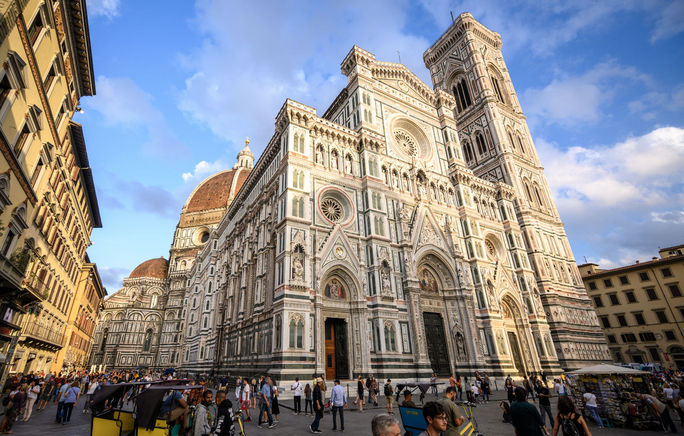After?Europe��s COVID-related travel restrictions fell away, its unsolved overtourism problems came rushing right back, arguably even worse than before. As a consequence, some of the Continent��s most famous destinations are increasingly seeing that cities�� real residents are being squeezed out by the rising number of vacation rental properties.
One of Italy��s most historically and culturally significant cities, Florence is also counted among the most famous and bustling tourism destinations in all of Europe. And, now, it��s moving to prohibit the registration of new short-term rentals (like Airbnb or Vrbo rentals) inside the city��s historic center.
Florence��s relevant authorities recently announced intentions to ban new vacation rentals, revealing that government officials will vote on the new legislation next Wednesday, with the law set to take effect by November.
The Mayor of Florence, Dario Nardella, said in a statement shared with CNN that this ��very important�� legislation would address what he called ��an emergency situation of total deregulation��. He explained, ��We are witnessing a progressive growth in the influx of tourists which has become even more pronounced since the pandemic.��

Duomo di Firenze in Florence, Italy (Photo via Hans Brunk)
Figures from Florence��s city council reveal that three-quarters of Florence��s short-term rentals are concentrated inside an area that constitutes just five percent of the municipal territory. Specifically, the city��s?centro storico (historic center), which��as the birthplace and artistic epicenter of the Renaissance era��is protected as a historic national treasure and UNESCO World Heritage Site.
By banning the creation of any new short-term rentals in this area, officials hope to make room for full-time residents to inhabit the area again. In June, Nardella said that Florence��s government would not try to shut down the 8,000 short-term rentals already operating in the historic center, but would offer owners incentives if they convert their properties to long-term residences.
Since the city��s regulatory plans were first announced in June, roughly 4,000 new short-term rentals have been registered, some of which were already operating illegally and some trying to get granted status before the new law takes effect.

PHOTO: Uffizi Gallery; Florence, Italy. (photo courtesy of TimArbaev/iStock Editorial/Getty Images Plus)
Nardella said these actions are being taken to protect Florence��s priceless heritage. ��We are putting a simple ban in the UNESCO area to meet our responsibilities of protecting the cultural and material identity of the?centro storico, and to dampen the effect of rent increases across the entire city��which are directly linked to the boom of short-term tourist rentals.��
The municipality of Firenze (as Florence is called in its native Italian) has taken matters into its own hands after what the mayor sees as the national government��s failure to solve a fast-growing problem. After all, lack of affordable housing has forced some university students to camp out in tents on campus and the city��s housing inventory has been severely depleted, due to the increase in short-term rentals.
Nardella said that the Florence authorities have, ��rolled up our sleeves because for too long we��ve been asking for regulation that never happens.�� He added, ��We cannot watch our?centro storico?changing and we cannot cope with all the problems of citizens unable to find an apartment to rent. Faced with inertia from the government and parliament, it��s our duty to act to put the brakes on this social emergency.��
For the latest travel news, updates and deals, be sure to subscribe to the daily TravelPulse newsletter here.
Topics From This Article to Explore